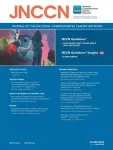(Press-News.org) DURHAM , N.C. -- Two out of five homes worldwide have at least one smart device that is vulnerable to cyber-attacks. Soon, that new smart TV or robot vacuum you’ve been considering for your home will come with a label that helps you gauge whether the device is secure and protected from bad actors trying to spy on you or sell your data.
In July, the White House announced plans to roll out voluntary labeling for internet-connected devices like refrigerators, thermostats and baby monitors that meet certain cybersecurity standards, such as requiring data de-identification and automatic security updates.
For tech companies that choose to participate, the good news is that there is a market for such a guarantee. A new survey of U.S. consumers shows that they are willing to pay a significant premium to tell which gadgets respect their privacy and are safe from security attacks before they buy.
But voluntary product labels may not be enough if the program is going to protect consumers in the long run, the authors of the study caution.
“Device manufacturers that do not care about security and privacy might decide not to disclose at all,” said Duke University assistant professor of computer science Pardis Emami-Naeini, who conducted the survey with colleagues at Carnegie Mellon University. “That’s not what we want.”
The average household in the U.S. now has more than 20 devices connected to the internet, all collecting and sharing data. Fitness trackers measure your steps and monitor the quality of your sleep. Smart lights track your phone’s location and turn on as soon as you pull in the driveway. Video doorbells let you see who’s at the door -- even when you’re not home.
But for all their convenience, today’s smart gadgets still have some glaring privacy and security flaws. You may have read the stories about strangers hacking into baby monitors, companies leaking data about customers and their passwords, or smart TVs watching you while you are watching them.
One study suggests that the number of attacks on smart devices doubled in the first half of 2021 alone, going from 639 million to 1.5 billion in just six months.
The new program, which resembles the 30-year-old Energy Star labeling program for appliances that meet certain energy efficiency standards, would “raise the bar” for cybersecurity in the home, the White House said in a statement.
Companies that practice transparency would certainly help people make more informed choices about their next smart gadget purchase, said Emami-Naeini, who has been collaborating with government officials and non-governmental stakeholders to inform the design of the cybersecurity label in the U.S. But are such labels a selling point for their products?
In a survey of 180 U.S. consumers, she and colleagues set to find out.
In an experiment conducted online, the researchers asked people to choose between discount offers on two smart devices based on labels showing different levels of protection.
For instance, a coupon worth $15 towards the purchase of a smart speaker that receives automatic security updates, versus $35 off for a smart speaker with no security updates. So a privacy-conscious consumer has to make a trade-off at the time of purchase -- is the more secure product worth paying closer to full price?
The findings show that people are willing to shell out up to 50% more for devices labeled with reassuring information about how they deter attackers or safeguard users’ data, as opposed to devices with no label that leave them in the dark.
“Consumers are willing to pay significant premiums to have security and privacy labels,” Emami-Naeini said.
“However, consumers aren’t as skeptical as we might hope when information is withheld from them,” she added.
When given a choice between a device with a label suggesting that it might not be the safest and no label at all, respondents were willing to pay more for an unlabeled device with no information at all about its security protocols and practices.
“That was a big surprise,” Emami-Naeini said.
Without information to the contrary, respondents said they simply assumed that items without warnings were no riskier than other models on the market.
Theoretically, tech companies could take advantage of such charitable assumptions to withhold information they’d rather their customers didn’t see, Emami-Naeini said.
That’s because currently the label proposed for the U.S. is optional on the part of device makers; manufacturers aren’t required to participate.
Consumers may start to see the new cybersecurity labels on U.S. store shelves as early as 2024. Other countries including Singapore, Finland and Australia are deploying similar programs to certify safe smart devices.
But the new research suggests that allowing device makers to either highlight or hide their security practices could make it all too easy to game the system. Companies who fear that transparency might stigmatize their products or cost them customers could simply opt out, Emami-Naeini said.
“We recommend having a mandatory security and privacy label,” Emami-Naeini said.
The researchers will present their findings August 9 at the 32nd USENIX Security Symposium in Anaheim, California.
This research was supported by the Carnegie Mellon University CyLab Security and Privacy Institute, and by a grant from the National Science Foundation (SaTC-1801472).
CITATION: "Are Consumers Willing to Pay for Security and Privacy of IoT Devices?" Pardis Emami-Naeini, Janarth Dheenadhayalan, Yuvraj Agarwal, Lorrie Faith Cranor. 32nd USENIX Security Symposium. Aug. 9-11, Anaheim, California.
END
Smart devices: Putting a premium on peace of mind
Cybersecurity labels for smart gadgets are coming. Are consumers willing to pay to know their risks before they buy?
2023-08-07
ELSE PRESS RELEASES FROM THIS DATE:
Uncovering the Auger-Meitner effect’s crucial role in electron energy loss
2023-08-07
Defects often limit the performance of devices such as light-emitting diodes (LEDs). The mechanisms by which defects annihilate charge carriers are well understood in materials that emit light at red or green wavelengths, but an explanation has been lacking for such loss in shorter-wavelength (blue or ultraviolet) emitters.
Researchers in the Department of Materials at UC Santa Barbara, however, recently uncovered the crucial role of the Auger-Meitner effect, a mechanism that allows an electron to lose energy by kicking another electron up to a higher-energy state.
“It is well known that defects or ...
Increased risk of dementia diagnosis, benzodiazepine exposure in seniors with anxiety
2023-08-07
ST. LOUIS - Research from Saint Louis University School of Medicine finds that among patients 65 and older, a diagnosis of anxiety was significantly associated with an increased risk of dementia diagnosis, and benzodiazepine exposure was associated with a 28% increased risk of dementia. However, when benzodiazepines were prescribed to patients with an anxiety disorder, there was no significant association between these medications and incident dementia.
The study, “Anxiety Disorders, Benzodiazepine Prescription ...
Paper addresses ethics of bioethics conference in Qatar
2023-08-07
The decision by a global bioethics association to hold its 2024 congress in Qatar, a nation with laws against LGBTQ+ people, provoked controversy, including objections from some of its own members.
The outcry motivated the organization’s president and colleagues to draft an ethics framework to guide future site selection. The framework, published today in The American Journal of Bioethics, might also help global organizations make decisions about ethically appropriate conference sites. [The paper is available in PDF by request.]
“Many organizations around the world are addressing these questions,” ...
Breakthrough polymer research promises to revolutionize recycling
2023-08-07
A team of researchers led by Brent Sumerlin, the George B. Butler Professor in the University of Florida Department of Chemistry, has made a breakthrough with the potential to transform how we recycle plastics. Their innovative approach to working with polymers has led them to develop a new method for recycling that promises to lower the energy requirement without sacrificing the quality of the plastic.
It’s no secret that the U.S. and the Earth at large have a pressing plastic problem. Despite a meteoric rise in usage over the past few decades, only about 10% of our plastic currently ends up getting recycled.
“Our work is a response ...
New study in JNCCN highlights rapid adoption of clinical research results into chemotherapy prescribing patterns
2023-08-07
PLYMOUTH MEETING, PA [August 7, 2023] — New research in the August 2023 issue of JNCCN—Journal of the National Comprehensive Cancer Network evaluates how an important analysis on local-regionally advanced colon cancer adjuvant chemotherapy impacted prescribing patterns. The IDEA collaboration included more than 12,000 patients with Stage III colon cancer across 6 randomized phase 3 trials in a planned pooled analysis, to determine how three or six months of post-surgery chemotherapy—either a combination of capecitabine/oxaliplatin (CAPOX) or fluorouracil/leucovorin/oxaliplatin ...
American Heart Association CEO again honored as elite nonprofit leader, health equity champion
2023-08-07
DALLAS, August 7, 2023 — Nancy Brown, chief executive officer of the American Heart Association, has again been recognized for elite leadership in the 26th annual listing of The NonProfit Times Power & Influence Top 50. For more than three decades, The NonProfit Times has been a leading trade publication providing news, information and insight into nonprofit management.
Brown, who is now appearing for the 8th time on this list, was recognized specifically for her leadership as a champion for equitable health. The NonProfit ...
Department of Energy announces $4.7 million for research on integrative computational tools for systems biology research
2023-08-07
WASHINGTON, D.C. - Today, the U.S. Department of Energy (DOE) announced $4.7 million in funding for five new research projects in computational biology. These projects will develop new software and analytical tools to manage the growing quantities of genomics and other data stemming from the study of microbes and other biological systems.
“The Biological and Environmental Research (BER) Genomic Science program is at the forefront of using genome-enabled approaches to identify the basic principles that drive biological systems underlying functional processes of organisms,” said Todd Anderson, DOE Acting Associate Director for BER. “To gain ...
Tiny, flexible spinal probe system could lead to better therapies
2023-08-07
HOUSTON – (Aug.7, 2023) – The spinal cord is harder to access and study than even the brain. The challenges posed by its mobility and anatomical structure have made understanding exactly how it functions difficult.
Rice University engineers will work with collaborators to optimize an array of nanoelectronic threads, or NETs ⎯ already used successfully for gathering high-fidelity, long-term data from neurons in the brain ⎯ for use in the spine, supported by a $6.25 million, four-year grant from the National Institutes of Health.
In addition to neuronal activity recordings, NET probes can provide tunable, localized stimulation of adjacent neurons. Rice ...
Advancing environmental justice research and student engagement in energy
2023-08-07
HOUSTON, Aug. 7, 2023 – The Baker Hughes Foundation announced a $100,000 grant to the University of Houston Energy Transition Institute (ETI) to support environmental justice research and workforce development programs.
The institute, which focuses on the creation and use of reliable, affordable, environmentally responsible energy for all through a just and equity-driven pathway, is looking forward to using the grant to amplify its mission.
“Thanks to the generous support of the Baker Hughes Foundation, the UH ...
Carbon dioxide – not water – triggers explosive basaltic volcanoes
2023-08-07
ITHACA, N.Y. – Geoscientists have long thought that water – along with shallow magma stored in Earth’s crust – drives volcanoes to erupt. Now, thanks to newly developed research tools at Cornell, scientists have learned that gaseous carbon dioxide can trigger explosive eruptions.
A new model suggests that basaltic volcanoes, typically located on the interior of tectonic plates, are fed by a deep magma within the mantle, stored about 20 to 30 kilometers below Earth’s surface.
The research, which offers a clearer picture of our planet’s deep internal dynamics and composition, with ...
LAST 30 PRESS RELEASES:
New strategies boost effectiveness of CAR-NK therapy against cancer
Study: Adolescent cannabis use linked to doubling risk of psychotic and bipolar disorders
Invisible harms: drug-related deaths spike after hurricanes and tropical storms
Adolescent cannabis use and risk of psychotic, bipolar, depressive, and anxiety disorders
Anxiety, depression, and care barriers in adults with intellectual and developmental disabilities
Study: Anxiety, gloom often accompany intellectual deficits
Massage Therapy Foundation awards $300,000 research grant to the University of Denver
Gastrointestinal toxicity linked to targeted cancer therapies in the United States
Countdown to the Bial Award in Biomedicine 2025
Blood marker from dementia research could help track aging across the animal world
Birds change altitude to survive epic journeys across deserts and seas
Here's why you need a backup for the map on your phone
ACS Central Science | Researchers from Insilico Medicine and Lilly publish foundational vision for fully autonomous “Prompt-to-Drug” pharmaceutical R&D
Increasing the number of coronary interventions in patients with acute myocardial infarction does not appear to reduce death rates
Tackling uplift resistance in tall infrastructures sustainably
Novel wireless origami-inspired smart cushioning device for safer logistics
Hidden genetic mismatch, which triples the risk of a life-threatening immune attack after cord blood transplantation
Physical function is a crucial predictor of survival after heart failure
Striking genomic architecture discovered in embryonic reproductive cells before they start developing into sperm and eggs
Screening improves early detection of colorectal cancer
New data on spontaneous coronary artery dissection (SCAD) – a common cause of heart attacks in younger women
How root growth is stimulated by nitrate: Researchers decipher signalling chain
Scientists reveal our best- and worst-case scenarios for a warming Antarctica
Cleaner fish show intelligence typical of mammals
AABNet and partners launch landmark guide on the conservation of African livestock genetic resources and sustainable breeding strategies
Produce hydrogen and oxygen simultaneously from a single atom! Achieve carbon neutrality with an 'All-in-one' single-atom water electrolysis catalyst
Sleep loss linked to higher atrial fibrillation risk in working-age adults
Visible light-driven deracemization of α-aryl ketones synergistically catalyzed by thiophenols and chiral phosphoric acid
Most AI bots lack basic safety disclosures, study finds
How competitive gaming on discord fosters social connections
[Press-News.org] Smart devices: Putting a premium on peace of mindCybersecurity labels for smart gadgets are coming. Are consumers willing to pay to know their risks before they buy?



